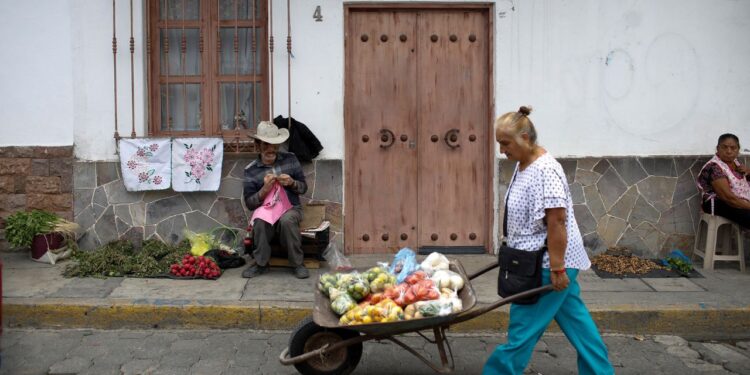Mexico’s government announced on Wednesday that it will raise the minimum wage by 12% starting next year in a bid to help the poorest workers, as the new leftist president pledged the hike will not fan inflation but instead promote a “humanist” economy.
The expected wage announcement was made by Labor Minister Marath Bolanos at President Claudia Sheinbaum’s regular morning press conference.
The minimum wage in Latin America’s No. 2 economy currently stands at nearly 249 pesos ($12.23) a day, after sharp hikes in recent years by the previous leftist administration hailed by supporters as a signature achievement.
Bolanos noted that dating back to the government of Sheinbaum’s predecessor, the minimum wage has more than doubled, up by 135%.
As a result of the latest increase, the government-set wage will rise to 278.80 pesos per day across most of the country. The daily wage, however, will increase to about 420 pesos in parts of northern Mexico near the border with the United States, where wages are higher.
The boost stems from an agreement between the country’s labor and business sectors.
“We continue on the path to rebuild the minimum wage and the purchasing power of Mexican men and women,” said Bolanos.
Sheinbaum, who took office in October, has pledged that her government aims to increase the minimum wage by around 12% each year. After her labor chief announced the hike, she batted away critics who argue that a double-digit boost will harm consumers by pushing prices higher.
“They said if this took place it was going to increase inflation. That’s false,” said Sheinbaum, pointing to central bank calculations that she said showed the 12% hike would not create any inflationary problem.
Her government aims to gradually raise the minimum wage to cover by the end of her term the cost of 2.5 so-called basic food baskets, made up of a list of common grocery items for a family of 3.7 individuals’ daily needs.
Sheinbaum’s six-year term extends to 2030.
($1 = 20.3550 Mexican pesos)
(Reporting by Ana Isabel Martinez and Aida Pelaez-Fernandez; Editing by David Alire Garcia and Bill Berkrot)
Source: Reuters
















